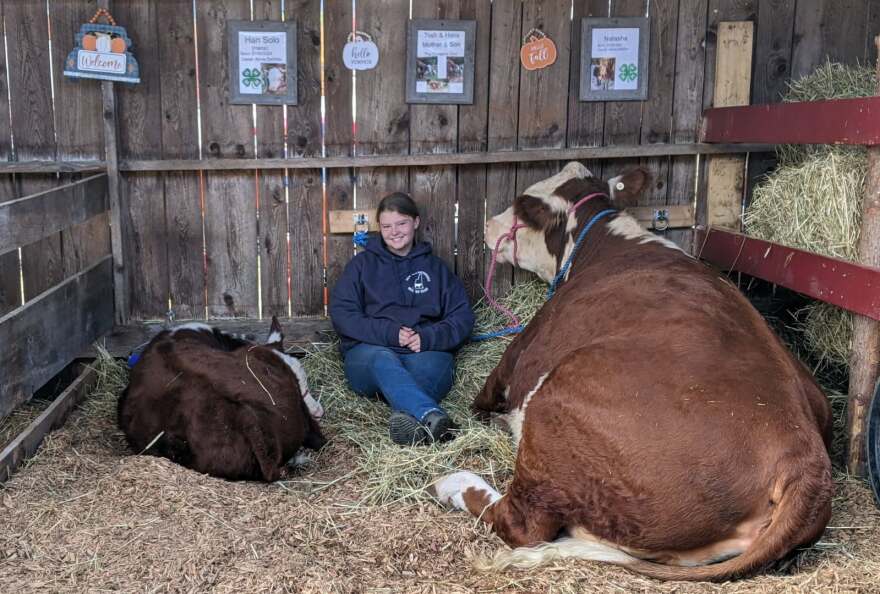As temperatures neared 100 degrees Monday, Nina Morawiak and Alice Dugger were sweating their way through duck duty, cleaning a dirty pool and raking up poop.
It was exactly where they wanted to be.
“I feel like a lot of kids my age spend a lot of time on their screens,” said Dugger, 13, of New Boston. “Like, it's so much more fun to be out here working with animals.”
Morawiak, 16, of Moultonboro, chimed in: “You are never going to have the same experience by watching a YouTube video.”
Morawiak and Dugger are two of New Hampshire’s nearly 20,000 4-H members — and among the dozens who spent the early part of the week at the University of New Hampshire, attending the NH Teen 4-H Conference. Monday, the group took a break from workshops to volunteer at a food pantry, a senior center, and the SPCA.
Morawiak and Dugger weren't alone in describing the 4-H life as a missed opportunity for kids who don’t participate. And that’s not in spite of the hard work required, but because of it.
Chase LaSala, 18, has sheep in Deerfield and cattle in Amesbury, Massachusetts. He has shown his steer, King, throughout the country.
“He has a better hair care routine than I do,” LaSala said of King . “He gets washed and blow dried twice a day. He gets fed twice a day. He gets walked twice a day.”
Annie DeWitte, 16, of Loudon, said raising animals has prepared her for life in ways her peers are not. She has to manage the time and money she puts into her animals. She needs to fatten them up in the right places and manage them in the show ring. She has to talk to strangers at fairs – and have the confidence to tell them when her animals can’t be petted.
“Some kids nowadays, they don't go out as much. They're more on the video games,” DeWitte said. “I will say I do play on my phone a lot, but I am also out there working with my animals as much as I can.”

DeWitte began with dairy goats nearly eight years ago, milking them before and after school. Now she’s preparing her first steer for auction.
“I've had to learn a lot about how to spend my money,” DeWitte said. “If I put more higher priced products in him, will it actually help him or can the cheaper products do the exact same thing? How do I market him?”
When she’s not cleaning duck pens, Dugger shows her dog.
“I am working with my dog every single day to keep her trained and obedient,” she said. “And people, they'll watch the dog shows, the horse shows, the cow shows and have no idea how much work goes into it.”
Dugger likes the independence 4-H has given her.
“You just have to figure it out basically on your own,” she said.
Erica Hutson, 16, of Epsom is focused on communications, not animals, another area of 4-H. She knows how to write a business plan, apply for grants, lead community service projects, give speeches, and launch a business.
Her first was a farm stand in Pittsfield.
“I had like a 50 percent profit margin,” Hutson said. “The people who ran the grant thought that was impressive, to be able to make something like that work.”
Hutson joined 4-H seven years ago, a newcomer compared to Charlotte Dill, 17, of Deerfield. Both sets of Dill’s grandparents were in 4-H, and her parents met through 4-H. She’s raising sheep.
“I think 4-H really helps you get that step forward of just being prepared and being able to go into college or the workforce,” Dill said.
She’s headed to the University of New Hampshire in the fall, to study animal science.


